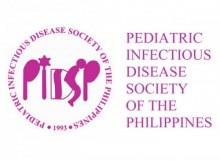Journal 2025 Vol.26 No.1
Editorial
New Frontiers, Persistent Challenges: Pediatric Infectious Disease Research in the Philippines
Paul Sherwin O. Tarnate, M.D.
Even in constrained settings, each local study strengthens the collective ability of Filipino clinicians to care better, decide wiser, and act sooner.
Infectious diseases continue to shape the daily realities of pediatric healthcare in the Philippines. From overcrowded emergency rooms to geographically isolated communities, clinicians often navigate uncertainty with limited tools and evolving evidence. In this landscape, locally driven research serves not just as an academic pursuit but as a lifeline, a means to ask the right questions, contextualize global recommendations, and adapt strategies to our unique healthcare environment. For many years now, the PIDSP Journal has stood as a steady platform for sharing such efforts, building an archive of Philippine-based knowledge that is scientifically sound and deeply relevant to the Filipino child.
Within these pages, and even across the PIDSP Journal’s growing body of work, are studies that attempt to decode the complex challenges faced in clinical care: the relentless threat of rabies, the elusive predictors of severe dengue, the quiet spread of antimicrobial resistance, and the subtle patterns of health-seeking delay. Some findings may affirm current approaches; others may yield inconclusive or even unexpected results. But every outcome,whether definitive or not, is a contribution. Particularly in resource-constrained settings, knowing what does not work or what lacks correlation can be as important as discovering what does. These insights inform decisions, sharpen clinical judgment, and pave the way for better questions and better-designed studies in the future.
To those undertaking research amid clinical duties, logistical hurdles, and institutional limitations: your work matters.
The PIDSP Journal welcomes your insights and invites you to build upon the data, perspectives, and experience shared year in and year out within its pages. Let us continue to embrace both progress and ambiguity, confident that each thoughtful inquiry brings us closer to the shared goal of safeguarding the health and future of our children.
https://doi.org/10.56964/pidspj20252601001
| View Full Article in PDF format |
